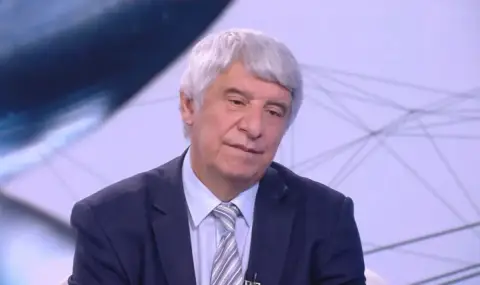The connection between the Unification and the declaration of Independence is deep and logical, said historian Prof. Plamen Pavlov in an interview for BTA.
In 1908, Bulgaria was still a vassal principality of the Ottoman Empire from an international legal point of view. Here is the great role of the Union, which in practice and “de jure” liquidated Eastern Rumelia, so between the two events – The Proclamation of the Union (1885) and the Proclamation of Independence (1908) have a deep and logical connection.
According to him, it should not be forgotten that the idea of declaring independence was not born in 1908, on the contrary, there were similar sentiments several times in previous decades, but from the point of view of international consensus, such a step was taken only in 1908 year. The Ottoman Empire took a tougher policy towards all its neighbors. After the suppression of the Ilinden-Preobrazhensky uprising, it became clear that the ideal of national unification of the Bulgarians could only be achieved by force, and not through reforms, which the Ottoman Empire did not want to implement anyway. With the act of Independence, clauses related to the privileges of the great powers in our market also fall away.
It must be understood that the political class of that time pursued an independent policy towards everyone, and especially towards the Ottoman Empire. That is why the politicians of the time should have given a clear sign to the world that Bulgaria will fight for its legal rights in Macedonia and Odrin Thrace. In this sense, this significant event is one of the peak moments in the development of modern Bulgaria, the historian stressed.
The role of Alexander Malinov and the government ministers - erudites, proven patriots, directly related to the struggles for Liberation and education is extremely important, emphasized Prof. Pavlov. According to him, one of the misconceptions about this event is that it is due almost entirely to Prince Ferdinand.
„After 1944, communist propaganda saw this event as almost an act of Ferdinand's vanity, therefore the declaration of Independence was considered a secondary event,” said Plamen Pavlov. On the other hand, with the regime's complete dependence on Moscow, the very concept of “independence” it was kind of awkward, he added. However, even before November 10, 1989, historians from the University of Veliko Tarnovo, first and foremost the late Professor Petar Goranov, raised the idea of the rehabilitation of this historical act. Its transformation into an official holiday is an extremely positive step, which is perceived by our entire society, as well as by the Bulgarian communities abroad.
In the government with Prime Minister Alexander Malinov, out of eight people, two are Bessarabian Bulgarians and one Macedonian Bulgarian. Prime Minister Malinov himself, who is a native of today's village of Orekhovka, in the Bolgrad region of Ukraine. A brilliant lawyer who graduated from Bolgrad High School and Law in Kyiv. He was prime minister five times.
General Danail Nikolaev, the patriarch of the Bulgarian army, also a graduate of the Bolgrad High School, participated in the battles of Shipka, as a junior officer in the Bulgarian militia. The man who guarantees the realization of the Unification, because he is the commander of the Eastern Rumelia Militia.
The third is the future great statesman Andrey Lyapchev, a native of Resen in Macedonia. If we trace the past of all the then ministers in this cabinet, we will see that all of them actively participated in the Union, in the school work, erudite people. The government should in no case be considered a shadow of the prince, stressed Prof. Pavlov.
If Ferdinand carried out the basic diplomatic preparations, Malinov and his ministers were insistent. Thus a consensus is obtained between the head of state and the government. During this period, the chairman of the National Assembly was Hristo Slaveykov, son of Petko Slaveykov. Ivan Salabashev, a mathematician and academician, then Minister of Finance, has very good memories and shares how on September 22 the old capital city was decorated with flags and was waiting for the event. At that time, the Bulgarian army was in the process of rearming, and one of the people who had the greatest merits was exactly Danail Nikolaev, as an infantry general. The politicians of that time were mostly visionaries. They themselves are an expression of Independence. The behavior of the Bulgarian government is an expression of independent thinking, of high motivation, which is why today's politicians and ministers should think about whose chairs they sit in, said Prof. Pavlov.
In his words, then the politicians looked far into the future and Independence was a tool that the state needed to participate in state unions and pursue its strategic goals without being hindered by the “strings” (the connections) of dependence, as written by Alexander Malinov in the Manifesto for Independence in 1908 at Dve Mogili station.
